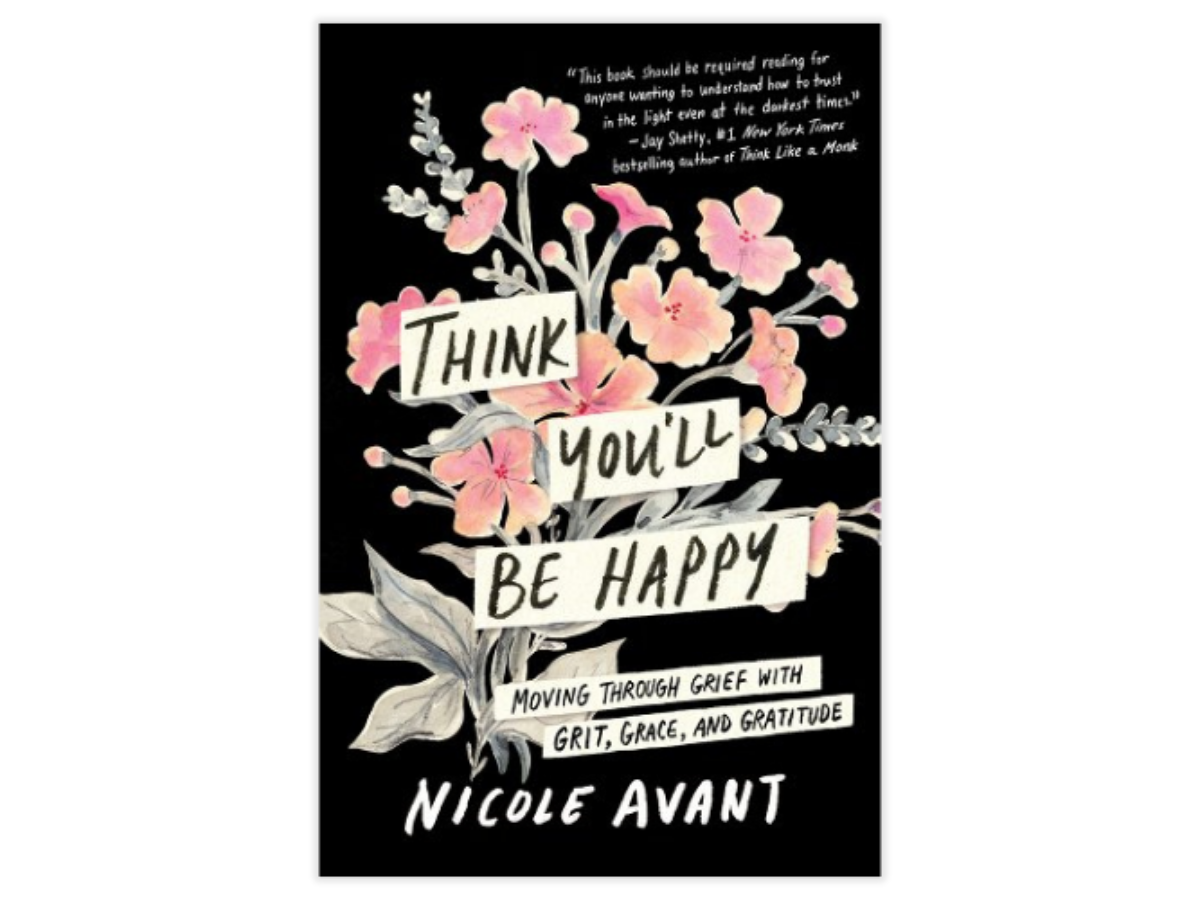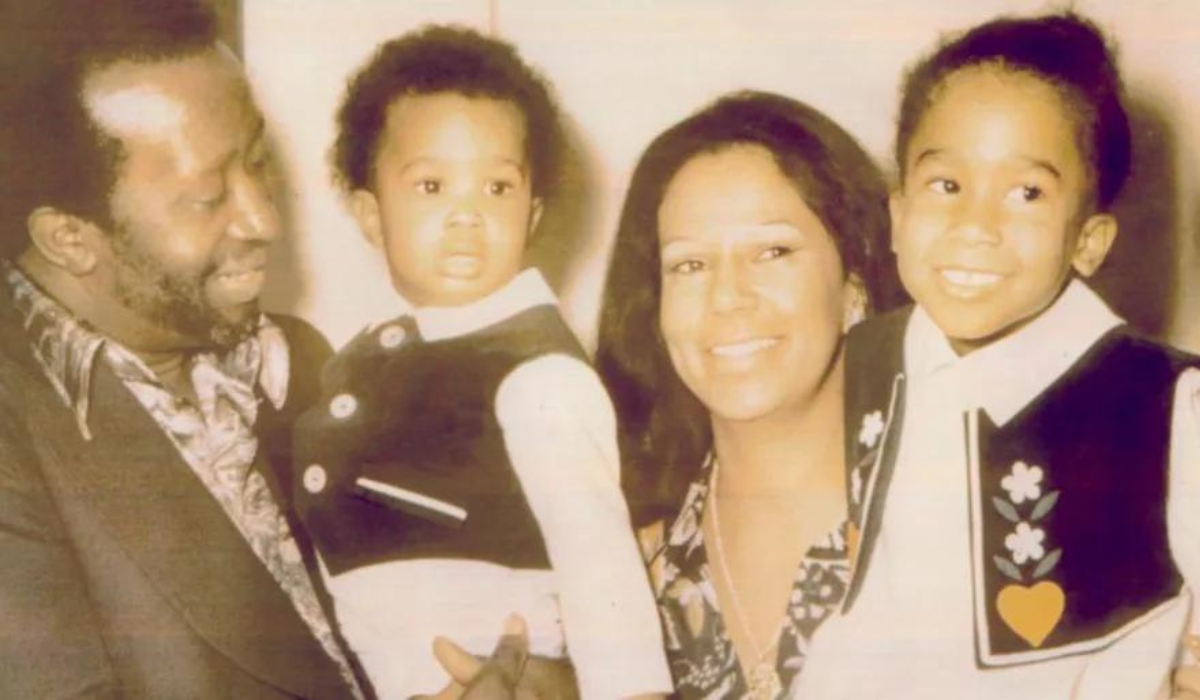She Lost Her Mother to Tragic Violence. Now, Nicole Avant Is Showing Us How to Move Through Grief With Grit, Grace, and Hope
In 2021, Nicole Avant faced the unimaginable: Her 81-year-old mother was brutally shot in her home by an armed robber. When the police arrived, they found Avant’s father cradling her mother on the floor. Her parents had been married for 54 years—and just two years after her mother’s death, Avant’s father died, too.
In her new memoir, Avant—former U.S. ambassador to the Bahamas and wife of Netflix co-Chief Executive Ted Sarandos—tells the story of her parents, who lived a life of service and were dedicated to opening doors for others. Avant also opens up about her mom’s murder, and how being faced with unexpected grief taught her how to face life’s toughest challenges with grit, grace, and gratitude.
The Sunday Paper sat down with Avant to find out how, even amidst terrible tragedy, we might learn to forgive, move on, and stay hopeful.
A CONVERSATION WITH NICOLE AVANT
In your new memoir, you unearthed your past to make sense of your present. What was that process like for you, and what did it teach you?
One lesson I learned is that while you can’t change the past, you can let parts of it go that don’t serve you. It’s not easy to do. But the beauty is that if you do this, you create a new future. There’s a saying that if you don’t heal your wounds from the past, you end up bleeding on other people—and they don’t understand why you’re bleeding on them. This has a lot to do with not addressing old things that may be triggering you and putting a wall up in front of your heart. We are all individually responsible for our own energy and even more importantly, for the story we tell ourselves.
If we end up telling ourselves the story that we’re victims, we’ll find ourselves on a hamster wheel. And you’ll never get off that wheel until you face everything and accept it. When I say accept it, that doesn’t mean condone it. But you do have to accept what happened and then make a decision from that place of acceptance: Do I want to move forward—or do I want to stay stuck here?
Your book is about how you learned to move through grief with grit, grace, and gratitude. What would you say to someone who feels stuck in their grief right now?
You know that saying, “The only way out is through?” Well, I’ve lived it and I’m telling you: The only way out is through. But remember, through doesn’t necessarily mean there’s going to be a final destination. That’s something else I had to learn. After I lost my mother, I would think, When is this feeling of grief going to stop? When is it finally going to be over?
Guess what? Some days my grief is heavier than others. Some days it’s light. Some days it doesn’t show up at all. But then I’ll hear a song on the radio that reminds me of my mom or my dad and the grief sets in again.
I write in the book that grief is a receipt from the Universe that you loved someone or something very, very deeply. If you look at it that way, it changes your perspective.
Your mother was brutally murdered in her home, and yet you write about learning to forgive the man who killed her. How did you do this?
First, when I say I forgave that man, it is in no way at all meaning that I condone his behavior. I think the word “forgiveness” is often misconstrued; everyone thinks you just forgive, release, and let go. You say, “It’s okay, even if what happened wasn’t okay.”
None of what happened to my mother was okay. But what I’m not going to do is carry the weight of unforgiveness, the weight of the anger, the weight of the fury, the weight of the disappointment. I don’t want to carry these things. I want to honor my mom and live a great life. And I cannot do that with unforgiveness in my heart because unforgiveness is poison.
The best way I can describe forgiveness is that I am giving up the anger and the frustration and the sadness and the pain to a higher power. My burdens of anger, pain, and deep sadness? If I don’t give them up every single day, I can’t move forward. And so I forgave my mother’s murderer for myself. It has nothing to do with him. I don’t think about him. I don’t know his name. I don’t care about him. He does not get to take anything else from me. He already took enough.
What have you learned about loss and grieving that are helping you now, in this difficult moment we collectively find ourselves in?
There’s always something going on in the world. When my anxiety is high and things feel dark, I ask myself: What good thing can I do in my world right now? It could be giving money or feeding people. It could be giving advice, a hug, a smile, even a thumbs up to somebody who might need it. Ask yourself, What acts of service can I do right now, in this moment that will help shift some energy? It doesn’t mean you’re going to change the energy of the world. But I do believe in the ripple effect it may prompt.
I also think it’s important to connect with others. Call your friends who are hurting right now in light of all that’s happening in the Middle East. These are little acts of kindness, but they can be transformational—for others and for your heart and soul. Giving unselfishly—what that does for your heart and your soul and your cells—brings things up to a higher vibration.
Do you have any daily practices that help you move through grief as it rises in you?
I thank God I was raised with the power of prayer. I pray every single day. When I get up in the morning, before my feet even hit the ground, I say the Lord’s prayer. It’s a habit my mom gave me. It helps me set an intention to choose to find joy and enjoy my day.
At night, quiet time for me is in the bath with the lights off, candle burning, and really just sitting with the Divine and letting things come to me as they come. Sometimes lots of things come. Sometimes nothing comes. But I do feel better because I feel connected.
When I was younger, I would meditate and wait for all these answers to show up. It never worked that way. Now I’ve realized, Oh I’m just supposed to meditate to calm my energy and connect with the higher power. Sometimes things come through meditation. Sometimes they don’t. I find if I’ve meditated, the answers will come later because I have meditated.
My mom used to meditate. When I asked her why she did, she’d say, “Because all of us are a transmitter. Everybody is a radio tower, and we’re in control of what we put out.” She always wanted to make sure she was emitting joy and positivity and love and service. This memory often prompts me to ask myself, “What am I putting out there, consciously or unconsciously?”
What do you hope readers will walk away with when they finish your book?
The book is about so many things—life, love, survival, legacy. I hope it helps people believe in tomorrow. I hope it helps people believe in a bright future. I hope readers understand that as difficult as it may be, there’s so much power in in releasing your past—and even more power to create a new future. Any moment you want to pivot or start over, you can begin again.
It doesn’t matter what you’ve done in the past. It doesn’t matter what’s been done to you in the past. When you’re ready, the Universe will be ready. And life is worth it. The journey is worth it.





